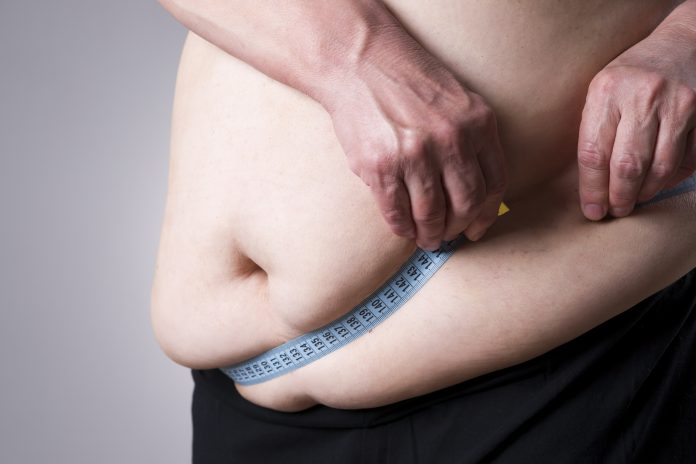Tam Fry FRSA, Chairman of the National Obesity Forum, discusses the beginnings of Boris Johnson’s fight against fat
Boris Johnson’s manifesto to fight the nation’s fat begins with a long sentence: “We will make prevention at the heart of this government’s health agenda to proactively tackle the burden of preventable ill health and empower everybody to make the healthy behaviours they want to make”. That said, in all the proposals that he announced in July, not a single measure could be truly said to be preventative. Hopefully, in August, he reflected on this omission on holiday as he played with his three-month-old son, Wilfred and makes amends when back in London. And Wilfred’s the clue as to what dad should do.
Prevention of obesity – where to begin?
Firstly, he should ensure that prevention begins at his son’s age – and before if possible. Indeed, way before. The optimum would be that in secondary school every girl is taught to get in shape before conceiving so that her offspring gets the healthiest start in life. The girl may not get round to parenthood for several years, but she should remember this vital lesson throughout her childbearing years. Tragically, in Britain, the lesson seems not to be taught at all as some 50% of mothers-to-be attend their booking-in weight check already heavily unhealthy. Doubtless, Carrie Symonds will have whispered in Boris’ ear that she was in great shape to give Wilfred the best beginning. Job number 1 for dad: whisper in the Education Minister’s ear to get PHSE properly taught and fat mums sorted.
The priorities for midwifery
Job number 2 is to give midwifery procedure a makeover. Currently, ladies get on scales at their pregnancy booking-in to confirm how heavy they are. It’s a time-honoured practice but one weight check is not enough. Mandatory weight checks at both second and third trimesters should be required in order to help ensure that they keep within an acceptable weight gain and there are guidelines to show how much is acceptable. Unfortunately, they are not universally used in the UK because they are American and that makes them “primitive” in the eyes of the midwifery establishment. Whenever they are used by rebellious practitioners on the ground, they are used best with women who are large to begin with, continue to flout the advice to eat properly and are thus in danger of producing macrosomic [very large] infants.
You may recall that a Public Health Minister once famously declared in Westminster that all mothers should be routinely weighed to ensure that they were not “eating for two”. She was roundly castigated for her view by the establishment but, actually, she was right. There is a mountain of literature to confirm that a mother’s obesity dictates that the newborn is three times more likely to grow up obese. If both parents are obese the chances verge towards tripling. Given this, wouldn’t it be prudent if Boris encouraged both parents to be checked at booking-in to weigh up the chances that it might be a large delivery?
Once delivered, routine weighing of the baby is a “must” at each planned health professional contact throughout its first year. The fact that in the UK babies are being referred to obesity clinics by their first birthday is proof that these measurements are being ignored. All too frequently, “chubby” babies are prized as being the models of good upbringing when regular assessment of their progress might suggest the opposite. Every family receives a Personal Child Health Record [PCHR] complete with growth charts so parents can see if action is required to curb any concerning weight increase. And whilst he’s about it, Boris should insist that, from the age of 2, the PCHR also contains BMI charts to monitor the growing toddler annually. Some 25% of primary school Reception Year children are overweight or obese, for which society should be ashamed. It’s ironic that animals in zoos get a health check annually yet children, the country’s future, do not.
Breastfeeding
Breastfeeding would go some way to mitigate early obesity but the UK does little to encourage it. In past days, there used to be NHS-funded regional breastfeeding coordinators and Breastfeeding Awareness Weeks to remind mothers that exclusive breastfeeding for six months was a child’s optimal source of nutrition – but no more. Exclusive breastfeeding rates at 26 weeks hover around 1% and too frequently children are breastfed for only a few weeks – if at all. Of course, many mothers are physically unable able to breastfeed — formula milk will always be needed — but an unforgivable number of mothers are denying their infants the best milk they can get and a protective blanket against obesity. Boris should kick start the nation’s breastfeeding.
Solving obesity
That’s exactly what our late “Nanny-in-Chief” would want, too. This self-deprecating description was coined by Dame Sally Davies, England’s outgoing. Chief Medical Officer, when she sent Nr 10 a list of jobs to do under the heading “Time to solve Childhood Obesity” and the revamping of a breastfeeding policy was one of them. Dame Sally specifically chose the first 1,000 days of life as being the ideal time to take preventative obesity action as she zeroed in on every nutritional aspect for children up to the age of two. She also headlined the proposal that the hugely successful Sugary Drinks Industry levy be extended to cover milk-based drinks with added sugar and possibly put an end to the excessive quantities of sugar found in breakfast cereals and a swathe of infant foods. Boris, who in his time may have had many a contretemps with nannies, must know that the easy life lies in doing their bidding. September is a good time to start, Mr Johnson. On yer bike.











